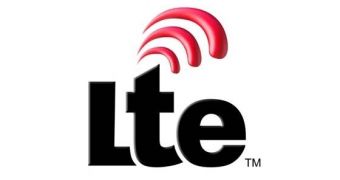Wireless carrier Sprint is the first large operator in the United States to offer 4G services to its users. The company offers these services on Clearwire's CLEAR network, which is based on the WiMAX technology standard, but it seems that this might not be enough. According to the latest reports on the matter, Sprint is actively interested in Long Term Evolution, the 4G standard expected to become the market leader starting with the next year.
Back in 2009, Clearwire's CEO stated at a certain point that it would not be that hard for the company to switch from the WiMAX 4G network to an LTE based network, and it seems that Sprint, which is a major shareholder in Clearwire, is actively interested in the roll-out of LTE. According to a recent article on UK's Financial Times, Sprint CEO Dan Hesse said recently that the wireless carrier is considering a move towards LTE, and that Sprint and Clearwire have enough spectrum to offer 4G services both on LTE and WiMAX.
This is not the first time Sprint is said to be eying LTE as the technology of choice for the deployment of a 4G network. Moreover, it seems that this move would bring the operator closer to another carrier in the country, T-Mobile, and that it would offer the two a door towards merging their operations. T-Mobile USA parent Deutsche Telekom was rumored before to plan selling or merging the carrier, and Sprint might be the safest bet, it seems.
However, there are a lot of differences between the two carriers that need be taken into consideration. First of all, Sprint operates on a CDMA network, while T-Mobile's is UMTS-based. This means that there are 48 million CDMA users that would have to be mixed together with 34 million GSM and UMTS customers, which won't be an easy task. Not to mention that Sprint already tried a similar move when it purchased Nextel and its iDEN infrastructure.
Interestingly enough, it seems that Hesse considers that the possibility that Sprint and T-Mobile might merge their operations is a logical one, but did not comment any further. “I don't see a need to scale larger, but if there's an acquisition that makes sense for us, I do want to have a balance sheet that would give me the flexibility of making good acquisitions when we see them,” is what he said, according to FT.

 14 DAY TRIAL //
14 DAY TRIAL //